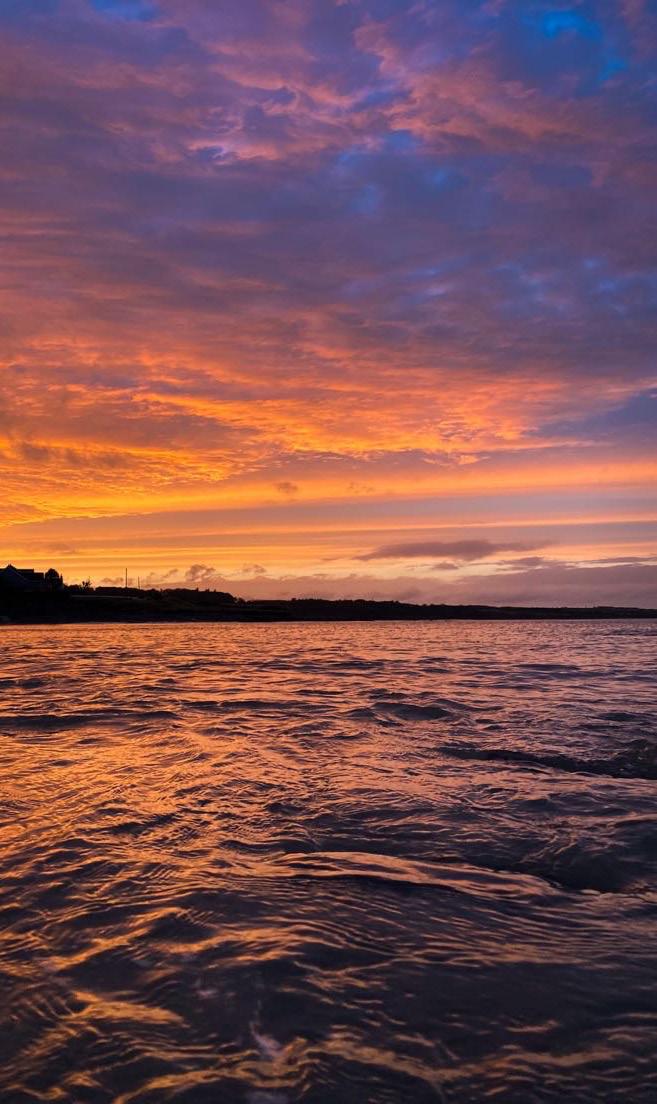Page 65
Policy
The Dichotomy of Interference: Voluntourism and Outsourced Emissions By Ellen Hyland, JS Law and Political Science “There is no planet B” encapsulates the recognition of climate change as an issue common to every citizen on earth. The Paris Agreement was signed in 2015 by 196 parties and emphasises the need to reduce global emissions and combat climate change. It also highlights, in particular, the plight of developing countries, who are frequently mentioned in the Agreement for two main reasons: 1. Developing countries are more vulnerable to the effects of climate change. 2. Developing countries are more likely to depend on heavily-polluting industries. Although the facts above are in part an unfortunate side effect of poverty and the natural environment, it is important to note that interference from developed countries and economies can perpetuate these realities. This article will explore two examples: one benign and the other more serious. Developing Countries are more Vulnerable to the Effects of Climate Change 2010 marked a year of devastating natural disasters, with two major earthquakes hitting Haiti in January, and New Zealand in September. Both earthquakes were of a similar magnitude (7.0 and 7.1 respectively), both were shallow, and both hit near large population centres. In spite of this, Haiti’s earthquake killed an estimated 230,000 people, while in New Zealand one person died of a heart attack and two were seriously injured. Many attribute the dramatic difference in casualties to building code regulations, and the poor construction of buildings in Haiti that led to their collapse during the earthquake. This example highlights the fact that even where the strength of the natural disaster is the same, less developed countries suffer more. In respect of climate change, developing countries are particularly vulnerable because not only are they situated in locations that are more at risk to the effects of climate change, but they are also disproportionately ill-equipped to deal with its side effects. A 2018 Guardian article on the harm caused by ‘voluntourism’ explains how Western charitable organisations that send unskilled volunteers to developing countries to undertake construction projects can maintain poor building development. Unskilled labour will always produce poorer results than skilled labour. The money would seemingly be better spent on funding public works, education, and training for the residents of the community. It follows that if the effects of climate change are to be mitigated by providing for strong foundational structures that can withstand extreme weather events, we need to rethink the types of construction aid that is needed and realise that money is better spent on sending skilled workers to disadvantaged areas rather than volunteering ourselves. Building long-lasting, durable structures should be a priority for any person concerned about climate change. This example may seem benign when compared to the catastrophic effects of climate change, but it is arguably representative of a mindset that assumes that because a certain policy or outreach project is well-intentioned, it is good. This mentality may hinder the global effort to combat climate change. Developing Countries are More Likely to Depend on Heavily Polluting Industries A 2018 report on the “carbon Loophole” explains that around 25 per cent of the global carbon footprint comes from imported goods. In a world characterised by international trade and a growing global economy, this may seem innocuous to the topic at hand. It is submitted that this figure of 25 per cent, however, encapsulates the




















